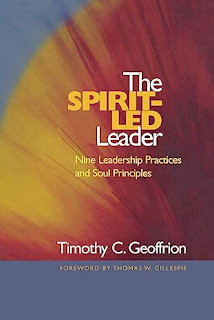Book Review: Congo - The Epic History of a People by David Van Reybrouck.
Congo - The Epic History of a People by David Van Reybrouck.
560 pages of history and stories on and around the DR Congo. The book is a journey through time, a very long time.
The author covers historical events and looks at those same events through the eyes of eye witnesses, regular people, people who got caught up in this epic history.
Every Congolese, especially those in any position or leadership, and those who desire to turn the DRC around should read this book to have a thurough overview of the history of the DR Congo from before colonial times to the year 2010.
I feel that David has opened the stories that are told among family members and confidents to th
The Congo has been and still is at the center of world politics and economics and will remain to be in the future. The book also present a diagnosis of where the country is in all aspects, especially culturally and how it got there.
Do you want to know why it's only in the DR Congo where people need mission orders to travel in their own country? Or how and why the independence date was set to 30th June 1960? Or what role each of the famous names played in the DR Congo history? Or why our musicians fill their songs with name dropping? Or etc? Then read this book from cover to cover.
As New York times Book Review has said : "A magnificent account, intimately researched,..."
Extracts from the Book :
1. "It is impossible to say how many people died as a direct or indirect result of Leopold's rubber policies. There are simply no reliable figures. What's more, there was another reason for the depopulation; many people simply went away, away from the river, away from the banks. They went to live deep in the jungle or crossed the border to remain beyond the reach of the state. They too became invisible. "
1. "It is impossible to say how many people died as a direct or indirect result of Leopold's rubber policies. There are simply no reliable figures. What's more, there was another reason for the depopulation; many people simply went away, away from the river, away from the banks. They went to live deep in the jungle or crossed the border to remain beyond the reach of the state. They too became invisible. "
2. " Beneath its surface, Congo turned out to conceal a true 'geological scandal' as Cornet put it. It was almost too good to be true. Until then, the economic exploitation of the area had been aimed exclusively at its biological riches - invory and rubber - but now a far greater wealth was found to be lying a few meters under the ground. Katanga, the rather unpromissing region that Leopold had annexed almost by accident in 1884, suddenly turned out to contain an improbably vast treasure trove.... The discovery that the colony was sitting atop these mineral riches came not a moment too soon..... It seems like a historical déjà vu: in the same way that rubber boom had arrived juts in time to offset the dwindling ivory trade, mining began just in time to replace the ailing rubber industry."
3. " There no other country in the world as fortunate as Congo in terms of natural wealth. "
4. " 1960 - 1965 : Everyone knew there would have to be a good deal of improvising during that first period after independence. That things would not run smoothly as burnished silk was only to be expected. But that Congo, during the first six months of its existence, would have to deal with serious military mutiny, the massive exodus of those Belgians who remained behind, an invasion by the Belgians army, a military intervention by the United Nations, logistical support from the Soviet Union, an extremely heated stretch of the Cold War, an unparalleled constitutional crisis, two secessions that covered a third of its territory, and, to top it off, the imprisonment, escape, arrest, torture, and murder of its prime Minister : no, absolutely no one had seen that coming. "
5. " In response to a state that was withdrawing from its citizens, the citizens withdrew from the state. 'Article 15' they called it.... 'Débrouillez-vous' (get it while you can).
6. "But the war was not over. After Lusaka it merely entered a new phase, a messy, dirty phase. All wars are dirty, but when the political motive makes way for pecuniary one, things go completely sour. And that is what is precisely what happened."





Comments
Post a Comment